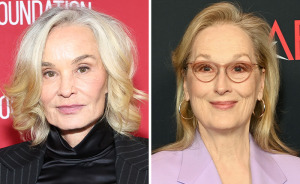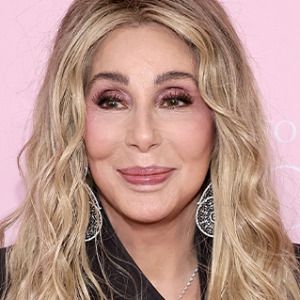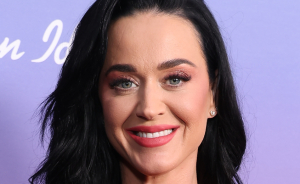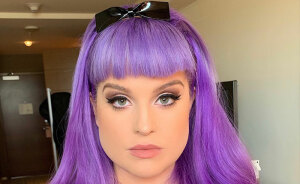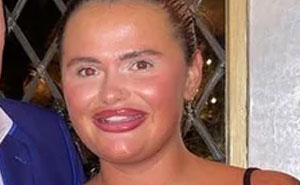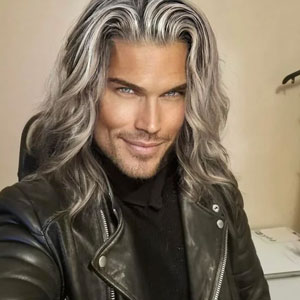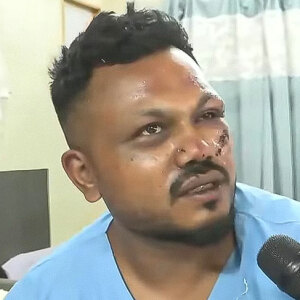
Someone Asks Dentists “Why Do You Talk To Your Patients While Your Hands Are In Their Mouths?”, Gets 26 Honest Answers
Sitting in a dentist’s chair is really the epitome of pure human vulnerability. It drills us to the bone (huh, what a pun!) and keeps us awake at night. But have you ever wondered why on earth dentists seem to always be in the mood for chitchat, ‘cause we all know very well, it’s the last thing you wanna do while trying to stay alive.
With hands deep in the corners of your mouth, scratching the root of a wisdom tooth, you suddenly hear “ready for the holidays?” I mean, thanks for being a nice doctor, but I am busy not crying now. One redditor decided to find out why on earth they do that, and posed the question “Why do you talk to your patients while your hands are in their mouths?" on r/AskReddit.
Pushed into the corner, dentists willingly provided some much-needed explanation that’s illuminating, to say the least. What if this whole small talk thing is really for our sake?
This post may include affiliate links.
 We talk to you to get your mind off of being in an uncomfortable and vulnerable position. I mostly ask closed-ended questions. Like “yes” or “no” questions.
We talk to you to get your mind off of being in an uncomfortable and vulnerable position. I mostly ask closed-ended questions. Like “yes” or “no” questions.
 My patients tend to concentrate on what's going on in their mouths, which doesn't help them relax, so I talk to them and ask questions. Every now and again I pause to let them answer the question, then go back to work. What I find is the patients become distracted from the procedure and instead concentrate on joining in the discussion.
My patients tend to concentrate on what's going on in their mouths, which doesn't help them relax, so I talk to them and ask questions. Every now and again I pause to let them answer the question, then go back to work. What I find is the patients become distracted from the procedure and instead concentrate on joining in the discussion.
 My childhood dentist would tell jokes while he was feeling around in there. He'd be sticking a little hook in my mouth and scraping, then he'd tell a joke and I'd start laughing and hurt myself. What a goddamn psychopath.
My childhood dentist would tell jokes while he was feeling around in there. He'd be sticking a little hook in my mouth and scraping, then he'd tell a joke and I'd start laughing and hurt myself. What a goddamn psychopath.
If you’re dreading the dentist, be sure to know you’re not the only one. A stranger poking in our mouths with noisy metal instruments you'd see in the Saw movie is surely not the most reassuring sight. According to a survey conducted by DentaVox on 18,000 people globally, 61% of respondents said they have dental fear.
To put it in perspective, 39% of them said they were are afraid of the pain, followed by the smell of chemicals (24%) and the sound of the drill (21%). And while it seems like those who have a dental fear of some sort would be more likely to take care of their dental hygiene in order to avoid sitting in a dental chair, that’s not exactly the case.
 My dentist mostly asks yes/no questions. He also has the best and loudest laugh I've ever heard, so it helps put people at ease. Seriously, I can hear him laughing while I'm still outside and I instantly feel better about being there.
My dentist mostly asks yes/no questions. He also has the best and loudest laugh I've ever heard, so it helps put people at ease. Seriously, I can hear him laughing while I'm still outside and I instantly feel better about being there.
 Not a dentist but in the field. We can actually usually understand your mmmmffpp sskkkmmmmff loloonmmmmmm talk. Enjoyed the golf in the palm desert Mrs. Smith?
Not a dentist but in the field. We can actually usually understand your mmmmffpp sskkkmmmmff loloonmmmmmm talk. Enjoyed the golf in the palm desert Mrs. Smith?
 Sometimes I'll do it when I need to distract a patient; they'll mumble an answer, get frustrated by the garbled sound, and completely forget that I'm doing something that had, up to ten seconds ago, been bothersome. It makes their visit a little easier since they'll recall that I'm a dummy that talks a lot, rather than the dummy that hurt them.
Sometimes I'll do it when I need to distract a patient; they'll mumble an answer, get frustrated by the garbled sound, and completely forget that I'm doing something that had, up to ten seconds ago, been bothersome. It makes their visit a little easier since they'll recall that I'm a dummy that talks a lot, rather than the dummy that hurt them.
A dentist once told me about how he hit a deer the previous night. He checked the deer, which was dead, went home, changed clothes and went back to get the deer. For the meat. But it was gone. Because somebody found it and took it. For the meat. I recall that he was a dummy that ate roadkill.
Tiril Willumsen, a professor at the University of Oslo’s Section for Paediatric Dentistry and Behavioural Science, explained: “If their phobia is extremely strong, they might find it uncomfortable doing anything with their teeth all. Even brushing them can be too unpleasant,” she says.
The vicious cycle starts when people who have toothaches from cavities can find it traumatic to even brush their teeth. If the fear of dentists becomes so strong that it starts to affect one’s life, it’s considered a phobia known as odontophobia. In this case, one should consult an expert in mental health who could help to find an effective psychological treatment.
 It depends on the situation. You may not like when we talk, but with other patients, it may be their only form of comfort. Dentists being silent, minus spouting off a bunch of dental jargon can make the experience an unpleasant one. I’ve always felt like dentists should take a couple years’ worth of psychology courses before going into dentistry.
It depends on the situation. You may not like when we talk, but with other patients, it may be their only form of comfort. Dentists being silent, minus spouting off a bunch of dental jargon can make the experience an unpleasant one. I’ve always felt like dentists should take a couple years’ worth of psychology courses before going into dentistry.
I like the small talk, I like that I can take my time to think up my answers to their questions. And ask some pretty good questions. All of my appointments in the last two years have been very interesting and left me feeling enlightened. I probably should take that as a life lesson, that I work better at a slower speed. I feel like my brain operates slower so I have to react and say whatever first comes into my head in order to avoid long silences. (Long silences when your teeth are getting cleaned on the other hand a perfectly reasonable)
 One dentist I knew would give you all the small town gossip, and, man, was he up on all the stories. No inputs required from your side, unless maybe you could contribute some story later.
One dentist I knew would give you all the small town gossip, and, man, was he up on all the stories. No inputs required from your side, unless maybe you could contribute some story later.
 I've actually gotten pretty good at interpreting what my patients say with my hands in their mouth! Also, it makes me laugh.
I've actually gotten pretty good at interpreting what my patients say with my hands in their mouth! Also, it makes me laugh.
 I'm fresh out of dental school. We were taught to engage with patients and build a rapport.
I'm fresh out of dental school. We were taught to engage with patients and build a rapport.
 I like to listen their awkward mumbling answers and laugh a little.. my own little amusement while doing boring, repetitive work...
I like to listen their awkward mumbling answers and laugh a little.. my own little amusement while doing boring, repetitive work...
 We're very lonely, since most of our time with the patient is spent working in their mouth, we have to talk to them just like that to get to know the patient better and help educate them about their oral health.
We're very lonely, since most of our time with the patient is spent working in their mouth, we have to talk to them just like that to get to know the patient better and help educate them about their oral health.
Oh yeah, not like you have colleagues and assistants to talk to
 My dentist always talks to me like I’m a student of dentistry or something. It’s kind of hilarious.
My dentist always talks to me like I’m a student of dentistry or something. It’s kind of hilarious.
 Not a dentist but work for one. After all the decades of practicing, they know exactly what you’re saying, as goofy as you think you sound. Even with your mouth wide open. And it’s normal to think “why is he talking to me with my mouth wide open?” But they probably talk/ask questions because they can understand these goofy sounding responses now
Not a dentist but work for one. After all the decades of practicing, they know exactly what you’re saying, as goofy as you think you sound. Even with your mouth wide open. And it’s normal to think “why is he talking to me with my mouth wide open?” But they probably talk/ask questions because they can understand these goofy sounding responses now
 Our office has headphones and we always ask patients if they'd like to listen to music. If we need to talk to them, we simply pat them on the shoulder. It helps the patient and it doesn't bother us at all. Definitely ask!
Our office has headphones and we always ask patients if they'd like to listen to music. If we need to talk to them, we simply pat them on the shoulder. It helps the patient and it doesn't bother us at all. Definitely ask!
I remember having headphones on 30 years ago when they had to remove excess bone around my back lower molars. The only song I remember is something by Barbara Streisand, thanks Babs!
 Because they like to hear people say, "argh caeew ayjhg aeeghee igh ow".
Because they like to hear people say, "argh caeew ayjhg aeeghee igh ow".
 My dentist said that it was to keep from getting bitten. If I was following along with his story, I wasn't focusing on the surgery or anything he was doing with his hands, so I was less likely to impulse and bite down or move when he was drilling.
My dentist said that it was to keep from getting bitten. If I was following along with his story, I wasn't focusing on the surgery or anything he was doing with his hands, so I was less likely to impulse and bite down or move when he was drilling.
 To keep you calm and to make the appointment feel shorter than it actually is
To keep you calm and to make the appointment feel shorter than it actually is
 Open-ended questions asked are purely by mistake...I'm aware you can't answer, but sometimes I slip up and and ask real questions...sorry!
Open-ended questions asked are purely by mistake...I'm aware you can't answer, but sometimes I slip up and and ask real questions...sorry!
 If they form a connection with you, you're more likely to come back and recommend their practice to your friends and family.
Furthermore, it has been shown that people are less likely to sue medical professionals they like. Even if that professional makes a pretty serious mistake.
If they form a connection with you, you're more likely to come back and recommend their practice to your friends and family.
Furthermore, it has been shown that people are less likely to sue medical professionals they like. Even if that professional makes a pretty serious mistake.
 My mom (dental hygienist) does this and I think she’s just lonely/bored and it’s her source of human interaction.
My mom (dental hygienist) does this and I think she’s just lonely/bored and it’s her source of human interaction.
 Because deep down in the dark pit of our souls we are chuckling at our patients' desperate attempt to speak with a mouth full of sharp and intimidating tools.
Because deep down in the dark pit of our souls we are chuckling at our patients' desperate attempt to speak with a mouth full of sharp and intimidating tools.
 If I allow myself to even acknowledge what they're doing, I'll faint, so I have to be distracted by small talk.
If I allow myself to even acknowledge what they're doing, I'll faint, so I have to be distracted by small talk.
 It's fun to watch people struggle to answer a simple question like "wonderful weather today isn't it?" While high on anesthesia with some dude wearing a welding mask is digging away at their teeth with an ice pick.
It's fun to watch people struggle to answer a simple question like "wonderful weather today isn't it?" While high on anesthesia with some dude wearing a welding mask is digging away at their teeth with an ice pick.
The only thing that is going through my mind during checkup is: am I unconsciously moving my tongue too much to make the dentist uncomfortable? Wait, now I have to consciously keep it still.
Back in my hometown, the dentist used to talk to us patients, but I thought it was normal, because she's an acquaintance of my parents (everyone is acquaintances in small cities). Then I moved to S. Korea and here dentists appear pretty silent and focused. I'll never forget the sounds their stomachs were making, so busy, couldn't even grab something to eat. Made me feel very sorry and very grateful at the same time. And yes, I know, it's their job, but still.
I've had worse. Had a three hour root canal with a big screen TV in front of me. I guess it was supposed to distract me. Three hours of Fox News! I didn't say anything because they had weapons and I didn't. I started getting grateful for the drill drowning out the sound.
The only thing that is going through my mind during checkup is: am I unconsciously moving my tongue too much to make the dentist uncomfortable? Wait, now I have to consciously keep it still.
Back in my hometown, the dentist used to talk to us patients, but I thought it was normal, because she's an acquaintance of my parents (everyone is acquaintances in small cities). Then I moved to S. Korea and here dentists appear pretty silent and focused. I'll never forget the sounds their stomachs were making, so busy, couldn't even grab something to eat. Made me feel very sorry and very grateful at the same time. And yes, I know, it's their job, but still.
I've had worse. Had a three hour root canal with a big screen TV in front of me. I guess it was supposed to distract me. Three hours of Fox News! I didn't say anything because they had weapons and I didn't. I started getting grateful for the drill drowning out the sound.

 Dark Mode
Dark Mode 

 No fees, cancel anytime
No fees, cancel anytime 







